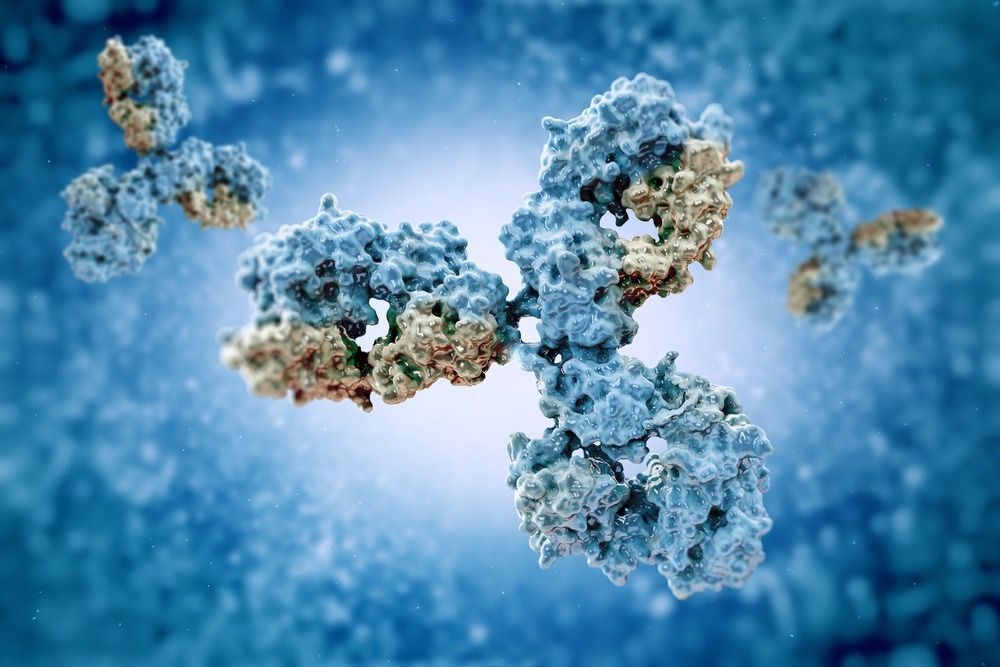In a recent study posted to the bioRxiv* preprint server, researchers explored the differences in infant and maternal cord antibody functions between severe acute respiratory syndrome coronavirus 2 (SARS-CoV-2) infection and vaccination during pregnancy.

Study: Diverging maternal and infant cord antibody functions from SARS-CoV-2 infection and vaccination in pregnancy. Image Credit: vitstudio/Shutterstock.com

 *Important notice: bioRxiv publishes preliminary scientific reports that are not peer-reviewed and, therefore, should not be regarded as conclusive, guide clinical practice/health-related behavior, or treated as established information.
*Important notice: bioRxiv publishes preliminary scientific reports that are not peer-reviewed and, therefore, should not be regarded as conclusive, guide clinical practice/health-related behavior, or treated as established information.
Background
Prenatal exposure to SARS-CoV-2 may have neurodevelopmental impacts on infants, even without vertical transmission. However, the full extent of these impacts is not yet known. Various studies, both on humans and animals, suggest that it is crucial to utilize a range of immune responses that can target different stages of viral infection and pathogenesis to achieve long-lasting protection.
Immunoglobulin (Ig)-G antibodies are the primary mechanism for immunity transfer to the fetus after messenger ribonucleic acid (mRNA) vaccination. Understanding the variety of IgG-mediated functions within the fetus can help us develop strategies to utilize maternal immunity for safeguarding the infant.
About the study
In the present study, researchers compared maternal-infant cord blood samples from individuals vaccinated with the SARS-CoV-2 mRNA vaccine during pregnancy.
Maternal-umbilical cord blood was collected from individuals who received mRNA vaccines that targeted WA1 receptor-binding domain (RBD) and/or were infected with SARS-CoV-2 during pregnancy. Neutralizing activity that prevents viral entry and infection was measured to assess the antibody functions elicited by vaccination.
The study analyzed the Fc effector functions triggered by SARS-CoV-2 infection and vaccination, specifically focusing on antibody-dependent natural killer cell activation (ADNKA), antibody-dependent cellular cytotoxicity (ADCC), antibody-dependent complement deposition (ADCD), and antibody-dependent cellular phagocytosis (ADCP). The study measured SARS-CoV-2 RBD IgG, IgA, IgM, IgG1, IgG2, IgG3, and IgG4 to identify vaccine-induced antibodies.
Results
Almost 47 individuals were vaccinated, with four receiving mRNA-1273 and 43 receiving BNT162b2 vaccines. There was no significant difference observed between the two groups. Individuals who received vaccination during pregnancy had a higher mean age than those who only had an infection. No significant differences were found in body mass index (BMI), infant sex, gestational age at childbirth, and other clinical outcomes.
Almost 20% of those infected were asymptomatic, 40% had mild symptoms, 10% had moderate symptoms, 14% had severe symptoms, and 16% had critical symptoms. Most vaccinated individuals received two doses of the vaccine, with the final dose administered during the third trimester prior to delivery.
Individuals who received mRNA vaccination showed higher cord-neutralizing activities against live SARS-CoV-2 (WA1/2020) than those with SARS-CoV-2 infection. However, there were no significant changes observed against SARS-CoV-2 Delta (B.1.617.2) and Omicron (BA.2) variants through focus reduction neutralization tests (FRNT). Vaccination during pregnancy leads to greater cord-neutralizing activity than only being infected, providing better protection against future challenges from the same viral strain.
The study discovered that vaccination during pregnancy leads to increased RBD ADNKA, which includes intracellular interferon (IFN)-g and tumor necrosis factor (TNF) alpha production and CD107a degranulation, as well as ADCD, but not ADCP, when compared to infection alone. After vaccination during pregnancy, the levels of low affinity activating FcgRIIa/CD32a and FcgRIIIa/CD16a, inhibitory FcgRIIb/CD32b, and high-affinity FcRN were higher compared to infection. The statistical difference between the combination of infection and vaccine versus only vaccine was not observed. Vaccination enhances the magnitude of some cord RBD Fc receptor binding and Fc effector functions, but not all.
Neutralizing activities were similar in paired maternal and cord samples, regardless of immune exposure. Maternal levels of RBD Fc effector functions were lower compared to cord blood in ADNKA. ADCP showed this observation, but RBD ADCD did not. Maternal blood showed lower relative binding for FcgRIIa/CD32a, FcgRIIb/CD32b, and FcgRIIIa/CD16a compared to cord blood consistent with the modulation of ADNKA and ADCP by low affinity inhibitory and activating FcgRs. The high-affinity FcRN, responsible for IgG transport across the placenta, did not show any difference.
The enhanced magnitude of RBD IgG1 was observed in cord samples, while there were no variations in control influenza-specific IgG. Minimal detection of RBD IgA and IgM was observed. Maternal vaccination is associated with increased levels of RBD IgG, particularly IgG1. The levels of RBD IgA and IgM showed an increase after vaccination, but no significant differences were observed. Vaccination during pregnancy increases the levels of RBD IgG, particularly IgG1, in the immune responses of both the mother and the fetus.
Partial overlap was observed in the coordination between the Fc effector and neutralizing functions in cord and maternal responses. The study found that the associations between RBD Fcg and ADNKA receptor binding and viral neutralization were similar between mothers and fetuses, regardless of their immune exposure. Maternal samples showed a higher prevalence of relationships to RBD ADCP following vaccination. Cord and maternal samples showed associations with RBD ADCD following infection. Variations between cord and maternal samples were more noticeable after vaccination than natural infection, indicating distinct responses in relation to particular immune exposures.
Conclusion
The study findings showed that two vaccine doses of the monovalent COVID-19 mRNA vaccine during pregnancy protected infants for up to six months after birth from COVID-19 complications and morbidity. However, the mechanism behind this protection is not fully understood. Cord blood vaccination results in increased polyfunctional breadth, overall magnitude, and antibody potency against SARS-CoV-2 via viral RBD IgG, specifically IgG1, as well as differential antibody glycosylation.

 *Important notice: bioRxiv publishes preliminary scientific reports that are not peer-reviewed and, therefore, should not be regarded as conclusive, guide clinical practice/health-related behavior, or treated as established information.
*Important notice: bioRxiv publishes preliminary scientific reports that are not peer-reviewed and, therefore, should not be regarded as conclusive, guide clinical practice/health-related behavior, or treated as established information.